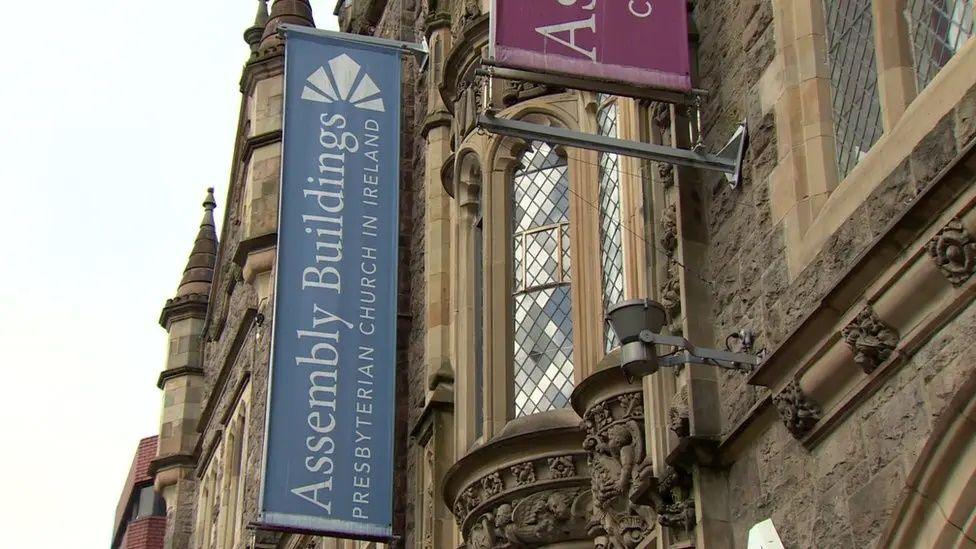Alderdice 'let down' by response to church bullying claims

Lord Alderdice helped compile the dossier alleging a culture of bullying and abuse of power within the Presbyterian Church in Ireland
- Published
One of the authors of a report alleging a culture of bullying and abuse of power within the Presbyterian Church in Ireland has said he feels let down by the response of the Charity Commission.
The document, compiled by former Alliance Party leader Lord Alderdice and Roy Simpson, alleges the mistreatment of ministers and members who held differing views.
Lord Alderdice said that despite submitting the 150-page report to it three years ago, the Charity Commission "hasn't even made enquiry about it".
The commission said it is "aware of concerns regarding the Presbyterian Church in Ireland and is looking into the issues raised".
The Presbyterian Church in Ireland said the Charity Commission had informed it that a document had been submitted to them "relating to matters concerning the church".
"The commission has not asked the church for any comment on this document.
"Should we be approached by the commission to do so, we will cooperate fully."
Lord Alderdice had been an elder in the church but resigned from his role in 2018, over the loosening of ties with the Church of Scotland due to its views on same-sex relationships and other decisions over time.
The former Assembly Speaker and Alliance Party leader said he felt let down by the Charity Commission.
"If it is that they don't have the resources, they need to be talking to the government to say 'you've given us a job to do, we don't have the resources'," he said.
"When they say to you we are investigating or we are exploring, they haven't even picked it up with the Presbyterian Church."
Speaking to BBC Radio Ulster's Talkback programme, Lord Alderdice also challenged the Presbyterian Church's use of non-disclosure agreements (NDAs) saying it showed a lack of openness.
An NDA is a legally binding document that protects confidential information between two parties and typically prevent staff and ex-staff making information public.
The Presbyterian Church confirmed to BBC News NI that it has used them.
"If ministers for example do open up and try to speak about things, they're accused of contumacy, they're accused of bringing the church into disrepute," he added.

First reported by the Belfast Telegraph, external, Lord Alderdice said the delay in dealing with the report calls into question whether or not the Charity Commission for Northern Ireland is "actually fit for purpose".
"Is it actually there doing what it's supposed to do? Three years on I have to say one has to be questioning that."
In its statement the commission said: "The commission has received a file in connection with this.
"As documentation submitted to the charity regulator by a concerned party, this information is currently under active consideration.
"The Presbyterian Church in Ireland case involves a lot of detailed and sometimes quite complex information, which has resulted in the investigation taking longer than usual to complete.
"The commission will keep reviewing the information we've received and aims to move things forward toward a suitable outcome over the next few months."
Because the PCI operates across the island of Ireland, the report was submitted to charity regulators in both Northern Ireland and the Republic of Ireland.
The Charities Regulator in the Republic said it does not comment on matters regarding individual charities.
The co-author of the dossier, former Presbyterian minister Roy Simpson, said it contains interviews with 12 people, adding that was "only really the tip of the iceberg".
"These people are very decent people, they're upright people, they're people who have given their lives in service to the church, they're not cranks and they don't tell lies," he said.
"They feel like they've been subject to spying, stalking, they've been subject to bullying, they've been subject to harassment and all sorts of derogatory comments said about them.
"There seems to be a pattern of behaviour from a small number of officials in the Presbyterian Church and unfortunately the same people, the same perpetrators, crop up again and again."